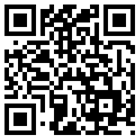
1-832-868-1888
order@swbio.com

Catalog Number: |
48488 |
| other_names: | AKT 1 antibody AKT antibody AKT1 antibody AKT1_HUMAN antibody MGC99656 antibody PKB antibody PKB-ALPHA antibody PRKBA antibody Protein Kinase B Alpha antibody Protein kinase B antibody Proto-oncogene c-Akt antibody RAC Alpha antibody RAC antibody RAC-alpha serine/threonine-protein kinase antibody RAC-PK-alpha antibody |
Amount: |
100μg |
| calculated_mw: | 56 kDa |
| host_species: | Mouse |
Price: |
$529 |
Swiss-Prot No: |
Swiss-Prot#:P31749 |
Form of Antibody: |
1*TBS (pH7.4), 1%BSA, 40%Glycerol. Preservative: 0.05% Sodium Azide. |
Storage/Stability: |
|
Immunogen: |
peptide |
Purification: |
ProA affinity purified |
Specificity/Sensitivity: |
|
Applications: |
WB, ICC, IHC, FC |
Background: |
The serine-threonine protein kinase AKT1 is catalytically inactive in serum-starved primary and immortalized fibroblasts. AKT1 and the related AKT2 are activated by platelet-derived growth factor. The activation is rapid and specific, and it is abrogated by mutations in the pleckstrin homology domain of AKT1. It was shown that the activation occurs through phosphatidylinositol 3-kinase. In the developing nervous system AKT is a critical mediator of growth factor-induced neuronal survival. Survival factors can suppress apoptosis in a transcription-independent manner by activating the serine/threonine kinase AKT1, which then phosphorylates and inactivates components of the apoptotic machinery. Mice lacking Akt1 display a 25% reduction in body mass, indicating that Akt1 is critical for transmitting growth-promoting signals, most likely via the igf1 receptor. Mice lacking Akt1 are also resistant to cancer: They experience considerable delay in tumor growth initiated by the large T antigen or the Neuoncogene. |
References: |
|
appl_detail: |
WB: 1:2,000 |
QUICK LINKS
Unique Antibodies Cancer/Apoptosis antibody Tag Antibody Neuroscience antibody MAP kinase antibody Secondary AntibodyCONTACT US
1-832-868-1888 order@swbio.com



GET IN TOUCH
